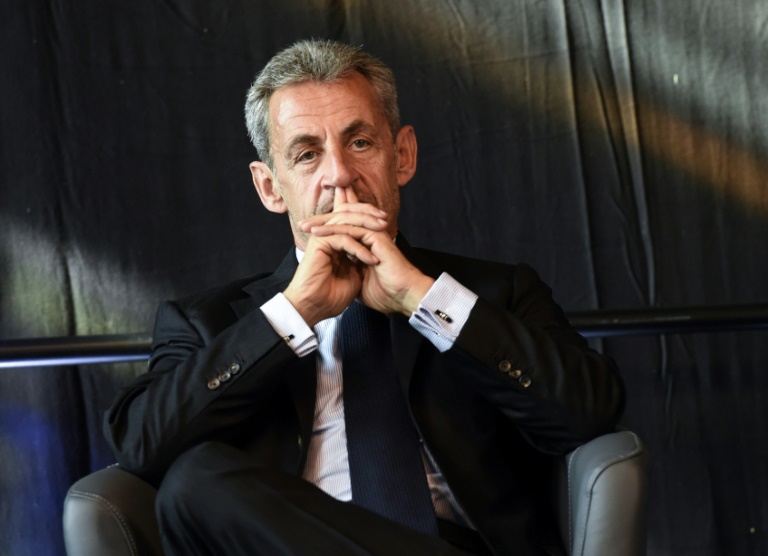A French court on Thursday handed former president Nicolas Sarkozy a one-year sentence for illegal financing of his 2012 re-election bid, dealing a fresh blow to the right-winger six months after he received a jail term for corruption.
Sarkozy, 66, will not serve time behind bars under the terms of Thursday’s verdict, with the court ruling that he would be able to serve the sentence outside of prison.
He was not in court to hear the judge hand down the maximum sentence for illegal campaign financing after finding that he had “voluntarily neglected” to monitor his campaign spending.
Sarkozy’s lawyer Thierry Herzog said he would appeal the verdict.
The verdict — which as in the first trial means he will likely serve the term at home with an ankle bracelet if confirmed on appeal — is not the same as a suspended sentence and goes down in his record as a full prison term.
Sarkozy spent nearly twice the legal limit of 22.5 million euros on his failed bid for a second term in office.
The case is one of several arising out of a string of investigations into Sarkozy’s affairs since he lost his presidential immunity.
– Bygmalion –
In March he became France’s first post-war president to be sentenced to jail in a separate case relating to his attempts to secure favours from a judge.
Sarkozy received a three-year jail for corruption and influence peddling at that trial, two years of which were suspended.
In that case, too, he will likely avoid prison, with the judge saying she would consider letting him serve the remaining year of his sentence at home, wearing an electronic ankle bracelet.
France’s president from 2007 to 2012 pulled out all the stops to try fend off his Socialist rival Francois Hollande.
A series of lavish US-style election rallies caused his costs to spiral, with the final bill coming to at least 42.8 million euros.
The public relations firm Bygmalion hired to organize the events set up a system of fake invoices to mask the real cost of the events.
While the investigation failed to prove Sarkozy was aware of the fraud, the court found that it “undeniably” benefited him.
– ‘Cavalier’ attitude –
At his five-week trial in May and June, the prosecution had portrayed him as having a “cavalier” attitude to the public money available to candidates during campaigning and said he ignored warnings from his accountants about the ballooning costs.
Sarkozy dismissed the allegations of wanton recklessness as “a fairy tale”, saying he had been too busy running the country to pay attention to the finer details of his campaign finances.
His Union for a Popular Movement party, since renamed the Republicans, picked up the tab for most of the excess.
Thirteen other people, including Sarkozy’s former campaign manager, several Bygmalion executives and a handful of former directors of Sarkozy’s The Republicans party were also tried in the case.
They received jail terms of up to three-and-a-half years in prison, with part of the sentences suspended.
Before Sarkozy, the only French leader to be sentenced at trial was his predecessor Jacques Chirac, who received a two-year suspended sentence in 2011 for corruption over a fake jobs scandal relating to his time as Paris mayor.
Sarkozy attended just one day of his campaign finance trial, a snub that infuriated prosecutors who accused him of acting “as if he is not answerable to the law like everyone else”.
The case failed to garner much interest among the public, with the charges seen as less sensational than the corruption charges that had already dented any prospect of Sarkozy making another comeback.
In 2016, he attempted to win back the Elysee Palace but failed to gain the nomination of his right-wing party.
Sarkozy was defeated by his former prime minister Francois Fillon, who was tipped to go on to win the election but crashed out in the first round over a fraud scandal that would later see him convicted.
Fillon’s downfall left the right rudderless and added to nostalgia among conservative voters for the heyday of the energetic Sarkozy, who led France through the eurozone debt crisis of 2008-2009.
With new presidential elections looming in April next year, conservative candidates have been jostling to receive Sarkozy’s endorsement.











